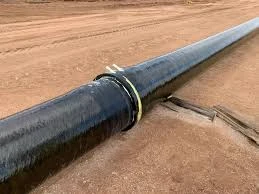
-
 Afrikaans
Afrikaans -
 Albanian
Albanian -
 Amharic
Amharic -
 Arabic
Arabic -
 Armenian
Armenian -
 Azerbaijani
Azerbaijani -
 Basque
Basque -
 Belarusian
Belarusian -
 Bengali
Bengali -
 Bosnian
Bosnian -
 Bulgarian
Bulgarian -
 Catalan
Catalan -
 Cebuano
Cebuano -
 China
China -
 China (Taiwan)
China (Taiwan) -
 Corsican
Corsican -
 Croatian
Croatian -
 Czech
Czech -
 Danish
Danish -
 Dutch
Dutch -
 English
English -
 Esperanto
Esperanto -
 Estonian
Estonian -
 Finnish
Finnish -
 French
French -
 Frisian
Frisian -
 Galician
Galician -
 Georgian
Georgian -
 German
German -
 Greek
Greek -
 Gujarati
Gujarati -
 Haitian Creole
Haitian Creole -
 hausa
hausa -
 hawaiian
hawaiian -
 Hebrew
Hebrew -
 Hindi
Hindi -
 Miao
Miao -
 Hungarian
Hungarian -
 Icelandic
Icelandic -
 igbo
igbo -
 Indonesian
Indonesian -
 irish
irish -
 Italian
Italian -
 Japanese
Japanese -
 Javanese
Javanese -
 Kannada
Kannada -
 kazakh
kazakh -
 Khmer
Khmer -
 Rwandese
Rwandese -
 Korean
Korean -
 Kurdish
Kurdish -
 Kyrgyz
Kyrgyz -
 Lao
Lao -
 Latin
Latin -
 Latvian
Latvian -
 Lithuanian
Lithuanian -
 Luxembourgish
Luxembourgish -
 Macedonian
Macedonian -
 Malgashi
Malgashi -
 Malay
Malay -
 Malayalam
Malayalam -
 Maltese
Maltese -
 Maori
Maori -
 Marathi
Marathi -
 Mongolian
Mongolian -
 Myanmar
Myanmar -
 Nepali
Nepali -
 Norwegian
Norwegian -
 Norwegian
Norwegian -
 Occitan
Occitan -
 Pashto
Pashto -
 Persian
Persian -
 Polish
Polish -
 Portuguese
Portuguese -
 Punjabi
Punjabi -
 Romanian
Romanian -
 Russian
Russian -
 Samoan
Samoan -
 Scottish Gaelic
Scottish Gaelic -
 Serbian
Serbian -
 Sesotho
Sesotho -
 Shona
Shona -
 Sindhi
Sindhi -
 Sinhala
Sinhala -
 Slovak
Slovak -
 Slovenian
Slovenian -
 Somali
Somali -
 Spanish
Spanish -
 Sundanese
Sundanese -
 Swahili
Swahili -
 Swedish
Swedish -
 Tagalog
Tagalog -
 Tajik
Tajik -
 Tamil
Tamil -
 Tatar
Tatar -
 Telugu
Telugu -
 Thai
Thai -
 Turkish
Turkish -
 Turkmen
Turkmen -
 Ukrainian
Ukrainian -
 Urdu
Urdu -
 Uighur
Uighur -
 Uzbek
Uzbek -
 Vietnamese
Vietnamese -
 Welsh
Welsh -
 Bantu
Bantu -
 Yiddish
Yiddish -
 Yoruba
Yoruba -
 Zulu
Zulu
Innovative Solutions for Underground Fiberglass Storage Tank Applications and Benefits
Understanding Underground Fiberglass Tanks
Underground fiberglass tanks have become a popular choice for a variety of applications, ranging from water and wastewater storage to fuel containment. These tanks offer several advantages over traditional materials such as steel and concrete, making them a preferred option in many industries. This article explores the unique features, benefits, and considerations associated with underground fiberglass tanks.
Structure and Design
Fiberglass tanks are made from a composite material consisting of glass fibers and resin, which provides a lightweight yet robust structure. The construction process involves the layering of fiberglass and resin, resulting in a seamless and smooth finish that is resistant to corrosion and environmental factors. Unlike steel tanks, fiberglass does not rust; thus, it extends the lifespan of the tank and minimizes maintenance requirements.
The design of underground fiberglass tanks is versatile, catering to different shapes and sizes to meet specific storage needs. They can be fabricated to hold substances such as potable water, chemicals, petroleum, and even sewage, making them a flexible solution across various sectors. Moreover, their lightweight nature allows for easier installation and transportation compared to heavier alternatives.
Advantages of Underground Fiberglass Tanks
1. Corrosion Resistance One of the primary advantages of fiberglass tanks is their superior resistance to corrosion. This quality is critical when storing chemicals or fuels that would ordinarily degrade metal tanks over time.
2. Lightweight Compared to traditional materials, fiberglass tanks are significantly lighter, which simplifies installation procedures and reduces labor costs. This property is especially beneficial in areas where soil conditions may pose challenges for heavy concrete or steel tanks.
3. Durability Fiberglass tanks exhibit impressive durability. They can withstand extreme weather conditions and fluctuating temperatures without compromising structural integrity.
4. Environmental Safety As concerns over environmental safety continue to grow, fiberglass tanks provide a secure option for underground storage. They are less prone to leaks and seepage, thereby minimizing the risk of contaminants entering the soil and groundwater.
5. Low Maintenance The smooth surface of fiberglass tanks reduces the likelihood of biofilm growth, making them easier to maintain. Additionally, their corrosion-resistant properties further minimize the need for repair and maintenance, providing long-term cost savings.
underground fiberglass tanks

6. Customization Manufacturers can easily customize fiberglass tanks to meet specific needs, including varying dimensions, fittings, and access points tailored to particular applications.
Considerations When Choosing Fiberglass Tanks
Despite their many advantages, there are several considerations to keep in mind when opting for underground fiberglass tanks
1. Installation Proper installation is crucial. Engaging professionals familiar with local regulations and best practices is essential to ensure compliance and safety standards.
2. Cost While fiberglass tanks generally offer long-term savings, their initial purchase price might be higher than traditional materials. It is important to weigh the upfront costs against long-term benefits.
3. Regulatory Compliance Different regions have varying regulations regarding underground storage tanks. It’s necessary to ensure that your fiberglass tanks meet local environmental and safety requirements to avoid penalties.
4. Soil Conditions The stability of the soil where the tank will be installed is critical. Conducting soil tests can help determine whether additional reinforcements or specific installation techniques are needed.
5. Longevity While fiberglass tanks are considered durable, factors like the type of content they will hold, environmental conditions, and general use can affect their lifespan. Proper handling and maintenance can extend their usability considerably.
Conclusion
Underground fiberglass tanks represent a modern solution for various storage needs. Their corrosion-resistant, lightweight, and durable nature, coupled with customizable options, makes them ideal for a wide range of applications. However, careful consideration of installation practices, costs, and regulatory compliance is essential to maximize their advantages. As industries continue to prioritize environmental safety and efficiency, fiberglass tanks will likely play an increasingly prominent role in underground storage solutions.









